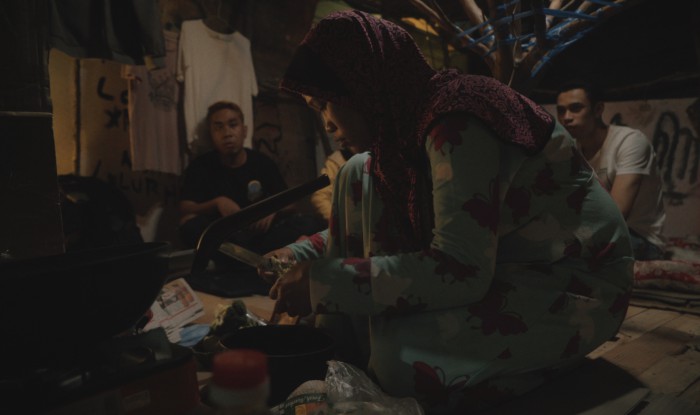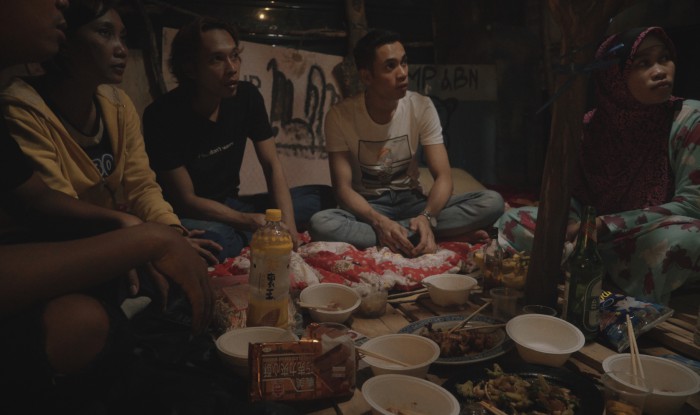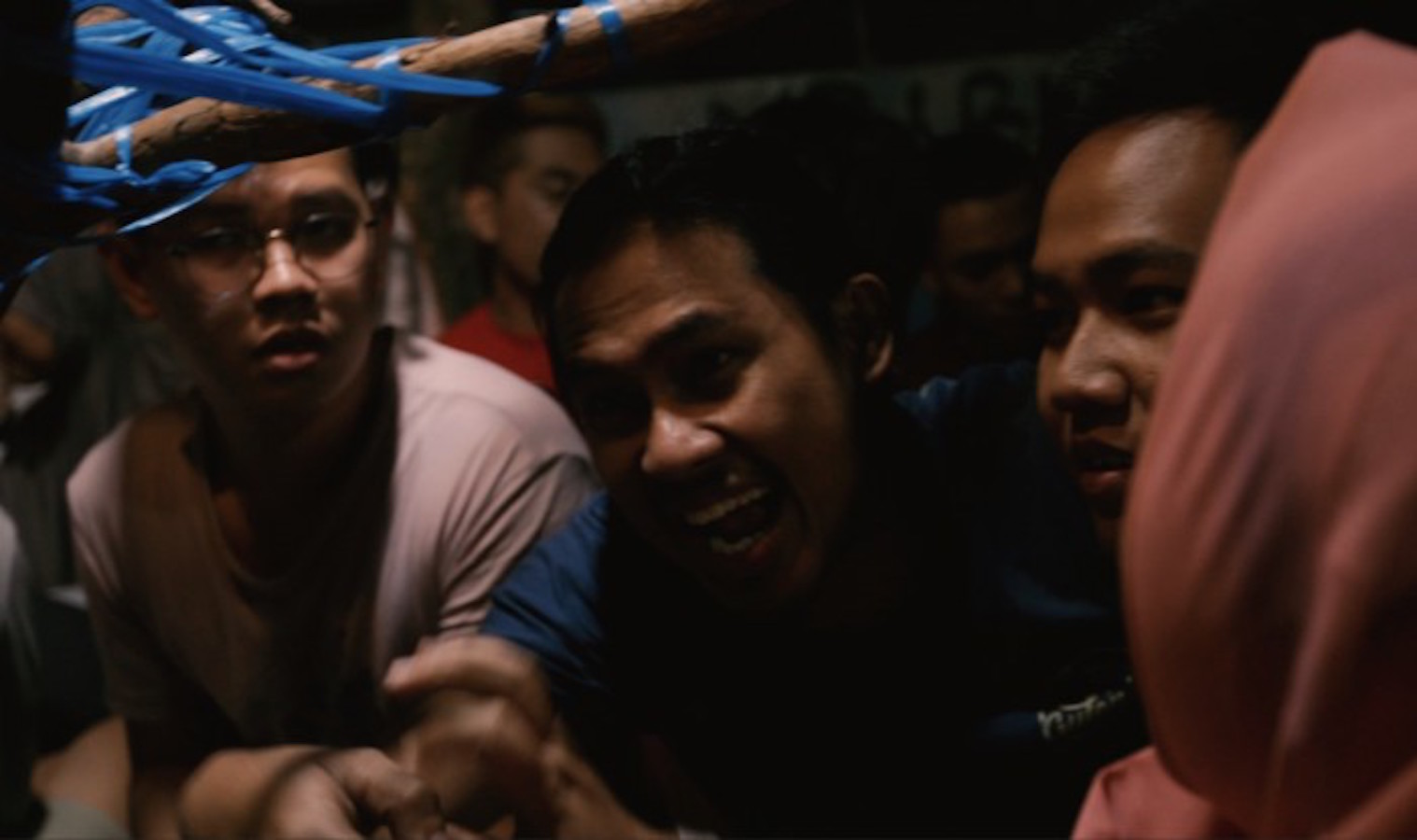by Brian Hioe
語言:
English
Photo Credit: Film Still
GUBUK (工寮), directed by So Yo-hen (蘇育賢), is a unique look at the experiences of “runaway” migrant workers in Taiwan, mixing fact and fiction, realism and the fantastical. As an experimental documentary that hopes to highlight the experience of migrant workers, the film is highly Brechtian.
Gubuk takes place in a hut, occupied by several Indonesian migrant workers that have fled their employers, as they sit together chatting over drinks. Little information ever comes up about the hut, except that it is a place of refuge for the so-called “runaway” migrant workers that flee their employers because of abuse, and that all of those that stay there are runaway migrant workers—some of which journey significant distances to visit. Context clues, such as the sounds of a passing train or of planes overhead, suggest that the hut is probably in a southern Taiwanese city, maybe Kaohsiung.
Film Trailer
Through the course of the hour-long short film, the hut sees more visitors. From a few visitors, the hut gradually overflows with migrant workers—all runaways. The conversation within the hut becomes cacophonous, polyphonous. While at the beginning of the short, individual migrant workers can be distinguished, gradually they recede into the larger whole of collective voices. There is shouting, crying. One can only make out the constant repetition of the phrase “We are all runaways here,” and talk of the inhumane behavior of Taiwanese employers. Certain threads can be traced out from the conversation before. Some of the gathered migrant workers begin to speak of going elsewhere, to where they can be better heard.
Through this, the camera dwells in the background, often remaining stationary in the manner of fly-on-the-wall documentary. The camera shifts several times, doing so invisibly, without it being clear what the perspective of the filmmaker is. Then, at the close of the film, the camera suddenly withdraws from the hut, pulling out to reveal that the hut is in a building, possibly a bar, where a migrant worker band is playing.
The actors in Gubuk are all themselves migrant workers, called on to play fictive versions of their real stories—in this sense, the film is documentary, even if it is scripted. Indeed, the conversations within the film are mundane, and often repeat the same points—the point seems to be to point the commonality of certain experiences among migrant workers, such as having to pay exorbitant broker fees, only making around 5,000 NT per month, or the unwillingness to address labor abuses by Taiwanese authorities. The majority of workers seen in the film are domestic workers that take care of the elderly or factory workers, seeing as migrant fishermen—another major category of migrant worker in Taiwan—rarely make it to land.

Film Still
In the film, the hut adds an element of surrealism, in that it is a place of shelter for migrant workers, one that they hear about through rumors and have to journey a great distance to find. This is probably deliberate. However, there are places across Taiwan where migrant workers—including runaways gather, including at migrant worker bars or other establishments. In this sense, the setting is not necessarily so unrealistic, even if exaggerating an aspect of reality.
With the film so reliant on the overlapping dialogue of migrant workers, the film’s sound design is excellent. The sound design manages to capture the individuality of each migrant worker, while pointing to how they share the same structural conditions involving workplace abuse and mistreatment.
Ultimately, Gubuk is not a didactic film. There are no answers for the dilemma of migrant workers, nor does the film go so far as to try and derive some lesson from their collective experience. But, to this extent, the point in the film is never to try and humanize the struggle of migrant workers through the story of any individual migrant worker who can provide a humanizing entry point into the larger issues that migrant workers face. Rather, the opposite approach is taken, to show the sheer magnitude of the issues confronting migrant workers. This, too, serves to drive home the point of migrant workers’ humanity, with migrant workers asserting their humanity against the dehumanizing conditions that they face in the form of a collective voice.

Film Still
Gubuk is an experimental film and, like much experimental Taiwanese documentary in past years, it borders on being an art film. However, as an experimental work, it proves highly successful in its aims. In shining a light on the experience of migrant workers in Taiwan through its unique mixture of theater and documentary, Gubuk accomplishes something that a purely mimetic documentary would not have been able to.



